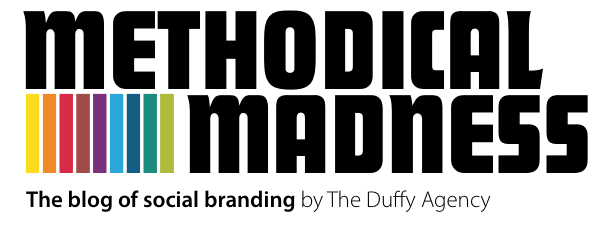6 Ways to Use Facebook, Twitter & LinkedIn to Boost Your SEO
 Friday, April 8, 2011 at 10:00AM
Friday, April 8, 2011 at 10:00AM Last December, Google's Matt Cutts confirmed that the search engine giant was beginning to look at social media sites like Facebook and Twitter as a way to help their ranking. More specifically, Google and Bing are using links within these social sites as ranking signals. In layman's terms, this means that what you tweet or post about can actually affect your search engine optimization (SEO).
With this in mind, let's look at ways you can use Facebook, Twitter and even LinkedIn to help your SEO. All these techniques assume that your profiles are open to the public. In fact, Google stated in a Q&A session with Danny Sullivan of Search Engine Land, "We treat links shared on Facebook fan pages the same as we treat tweeted links. We have no personal wall data from Facebook."
Facebook & Twitter
We'll first look at Facebook and Twitter. We're combining these two platforms because search engines look at both in very similar ways.
- First let's talk about content. As with any social media tool, posting quality content is important. From an SEO point of view, the concentration of keywords in what you post and tweet about helps with your Google and Bing juice. So if you have a business Facebook page or Twitter account, and you post, tweet and retweet overwhelmingly about social media marketing, search engines will start placing more importance on those links. As with your Web site, if the concentration of keywords is diluted, let's say by tweets about what you had for lunch or what was on TV last night, then the influence of those accounts are also diluted.
- Both Bing and Google look at social authority as a way to judge the importance of posts and tweets. The search engines consider not only the number of friends/followers you have (the more the better) but also the number of friends/followers your friends/followers have (again, the more the better).
- The popularity of your tweets also helps increase the rankings signals. The more retweets you receive the more the search engines see that tweet as "important." So if the URL in your Tweet about social media marketing leads back to your site and that tweet is retweeted by your popular friends then this will help your ranking for that phrase.
Danny Sullivan summed up using Facebook and Twitter to help with your search engine ranking this way: " . . . retweets serve as a new form a link building. Get your page mentioned in tweets by authoritative people, and that can help your ranking in regular search results . . . "
LinkedIn has less dynamic content but it is easily crawled and indexed by Google and Bing. In addition, LinkedIn has a good amount of authority built in, so information from LinkedIn profiles already have a head start in a way.
- The first place to concentrate your LinkedIn SEO efforts is with your profile. When filling out your profile, make sure that you use plenty of targeted keywords
- LinkedIn allows you to create a customized URL for your account. This is not permanent and can be changed at any time. Creating a customized URL that is either keyword rich or the name of your company is a good idea to boost your search engine ranking.
- Lastly, whenever possible use anchor links in your profile. For example, when entering your Web site and blog information for your profile, select "Other" from the drop down menu. This allows you to add your own anchor text for your different Web site and blogs. Unfortunately, LinkedIn only allows 30 characters for this anchor text, so make the most of it.
What tips and tricks do you have to leverage your social media assets to help your search engine optimization?
Kevin Duffy is the Creative Director for The Duffy Agency's Boston office.

Reader Comments (1)